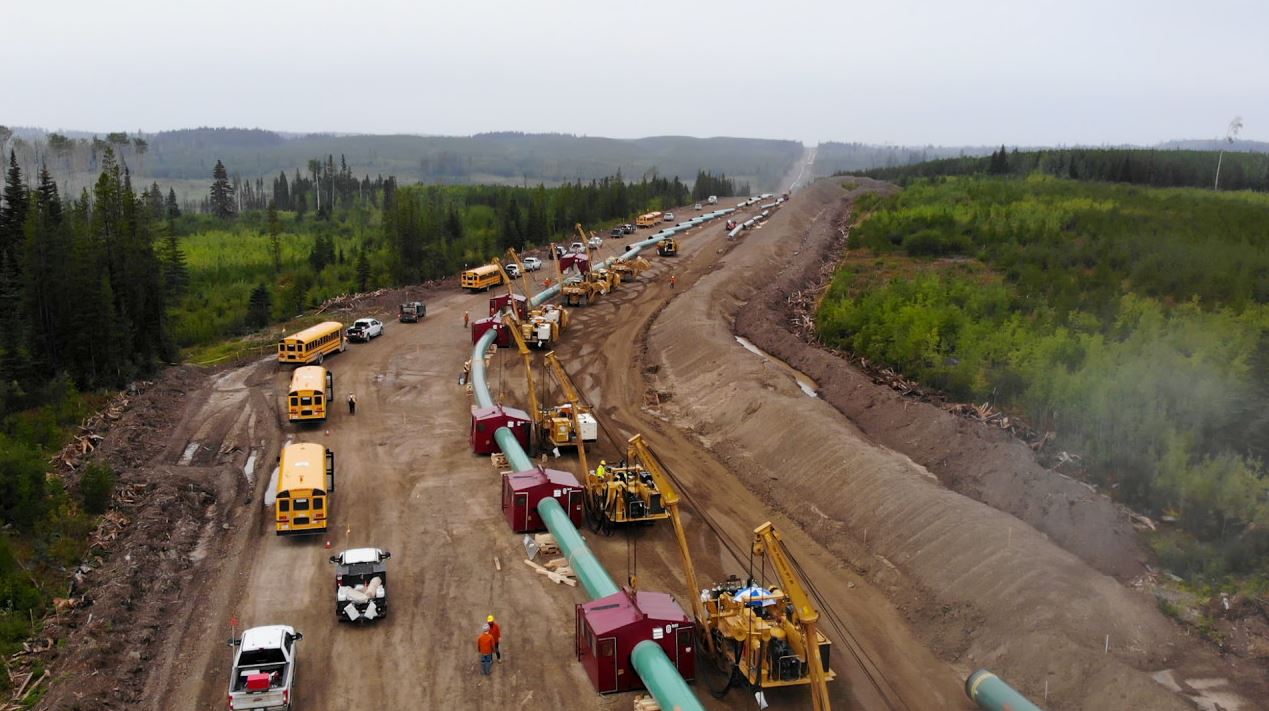TC Energy said it has signed option agreements with Indigenous communities to sell a 10 percent stake in its Coastal GasLink pipeline project which will supply natural gas to the Shell-led LNG Canada export terminal.
The opportunity to become business partners through equity ownership was made available to all 20 Nations holding existing agreements with Coastal GasLink, according to a statement by TC Energy.
Also, the Nations have established two entities that together currently represent 16 communities who have confirmed their support for the option agreements: CGL First Nations Limited Partnership and the FN CGL Pipeline Limited Partnership.
The formal establishment of these agreements comes from interest expressed by Indigenous groups across the project corridor to become owners in Coastal GasLink alongside Alberta Investment Management Corporation, KKR, and TC Energy, it said.
“The equity option is in addition to 20 agreements Coastal GasLink has with Indigenous groups along the route which provide opportunities for contracting and employment as well as other long-term benefits,” it said.
“The equity option is exercisable after commercial in-service of the pipeline, subject to customary regulatory approvals and consents, including the consent of LNG Canada,” TC Energy said.
About 60 percent complete
Expected to go online in 2023, the 670 km long pipeline pipeline is currently about 60 percent complete.
The pipeline has a price tag of more than C$6.6 billion ($5.16 billion). However, Coastal GasLink and LNG Canada previously said they were in commercial discussions regarding the cost and schedule for the project.
Coastal GasLink will move at least 2.1 billion cubic feet per day of natural gas with the potential for delivery of up to 5 bcf/d from the Dawson Creek area to the LNG Canada facility in Kitimat, British Columbia.
LNG Canada also passed the 50 percent completion mark and installed the main absorber column.
Besides Shell, LNG Canada partners include Malaysia’s Petronas, PetroChina, Japan’s Mitsubishi Corporation but also South Korea’s Kogas.
LNG Canada expects the first LNG shipment from the first phase of the plant, which includes two trains with a capacity of 14 mtpa, in the middle of the decade.

